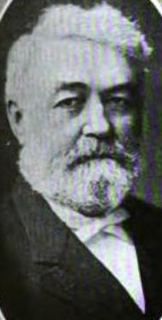A Quote by Carl Jung
It is often tragic to see how blatantly a man bungles his own life and the lives of others yet remains totally incapable of seeing how much the whole tragedy originates in himself, and how he continually feeds it and keeps it going.
Related Quotes
It is often tragic to see how blatantly a man bungles his own life and the lives of others yet remains totally incapable of seeing how much the whole tragedy originates in himself, and how he continually feeds it and keeps it going. Not consciously, of course—for consciously he is engaged in bewailing and cursing a faithless world that recedes further and further into the distance. Rather, it is an unconscious factor which spins the illusions that veil his world. And what is being spun is a cocoon, which in the end will completely envelop him.
The only way your powers can become great is by exerting them outside the circle of your own narrow, special, selfish interests. And that is the reason of Christianity. Christ came into the world to save others, not to save himself; and no man is a true Christian who does not think constantly of how he can lift his brother, how he can assist his friend, how he can enlighten mankind, how he can make virtue the rule of conduct in the circle in which he lives.
Man is made of opinions,—of truth and error; and his life is a warfare like all other lives before him.... Man goes on developing error upon error till he is buried in his own belief.... It is the office of wisdom to explain the phenomena in man called disease, to show how it is made, and how it can be unmade. This is as much a science as it is to know how to decompose a piece of metal.
See how he cowers and sneaks, how vaguely all the day he fears, not being immortal nor divine, but the slave and prisoner of his own opinion of himself, a fame won by his own deeds. Public opinion is a weak tyrant compared with our own private opinion. What a man thinks of himself, that it is which determines, or rather indicates, his fate.
Ever since I was young I understood the whole meaning of life isn't how much money you accumulate, how much fame you experience, it's how many lives you touch, how many faces you bring smiles to. I see myself back in Hawaii doing something in the community to improve the lives of young children. Everything I've done is to prepare myself to give back.
I love writing songs with people, which is about really taking risks, throwing yourself over the falls and really seeing what you're made of and seeing how it sticks. Seeing how others react to it, and seeing also how it can become a melody and how it can really take off from your experience. It's a way of seeing life unfold on the page before me.
Many concerns now make part or the whole of their dividends from by-products that formerly went to waste. How do we, as individuals, utilize our principal by-product? Our principal by-product is, of course, our leisure time. Many years of observation forces the conclusion that a man's success or failure in life is determined as much by how he acts during his leisure as by how he acts during his work hours. Tell me how a young man spends his evenings and I will tell you how he is likely to spend the latter part of his life.
We all have our own takes on things. To being yourself. The abstract, the whole thing that I play with, seems to result in seeing through your lenses, and once you express how you see things to others, you start to see there are similarities between all people. It's kind of like, no matter how far you go, you're still where you started, in a way.
Man—every man—is an end in himself, not a means to the ends of others; he must live for his own sake, neither sacrificing himself to others nor sacrificing others to himself; he must work for his rational self-interest, with the achievement of his own happiness as the highest moral purpose of his life.




































